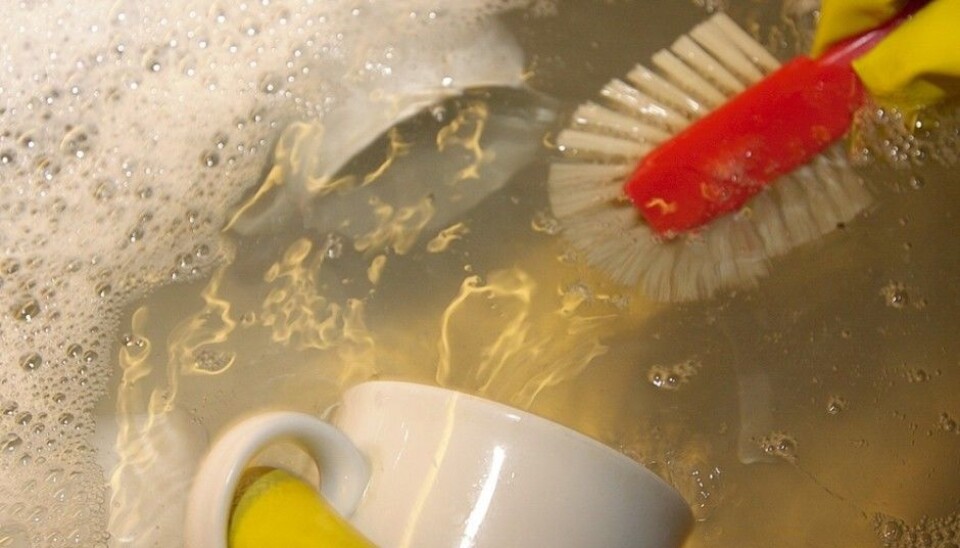
Much less allergy in families who do the dishes by hand
A simple dish brush appears to be a great weapon against allergy development. Children in households that don’t use dishwashers are much less prone to be allergenic.
Child allergies are on the rise. A new study shows that children who grow up in homes that wash their dishes the old way could be protected from this widespread problem.
Swedish researchers studied over 1,000 kids aged 7-8 in a northern and a southern region. The researchers from the University of Gothenburg have recently published their results in the latest edition of Pediatrics.
40 percent lower probability
Parents were asked about the ways they wash up and whether their children had eczema, asthma or hay fever.
Children in households where the parents wash the dishes by hand run a 40 percent lower chance of developing allergies than other children.
The risk of allergy was even lower if the child ate food that was fermented or came directly from farms, as these have contain bacterial flora. Children who grow up on farms are known to run a lower risk of allergies than kids who don’t.
Supports the hygiene hypothesis
The researchers point out that when we wash dishes by hand the flatware, cups, glasses and plates do not get such a thorough cleaning as they do in dishwashing machine. This is beneficial because it introduces the family to a wider microbial flora.
Several studies in recent years back up the hygiene hypothesis, which says that a little dirt around the home environment is better than having squeaky clean plates and a sterile household ― it helps kids build up their immune defence systems.
Get rid of the dishwasher?
But the Swedes stress that they haven’t found a water-tight direct connection. There could be other reasons why those who wash their dishes by hand have fewer allergies. For instance, a study has shown that children from households with lower incomes also run lower risks of getting allergies.
Even though the Swedish researchers took income factors into account, there could be other ways in which people without dishwashers ― or who rarely use them ― live differently than those who run the machines daily.
So it’s too early to urge people with young children to throw out their dishwashers.
-------------------------------------------
Read the Norwegian version of this article at forskning.no
Translated by: Glenn Ostling










